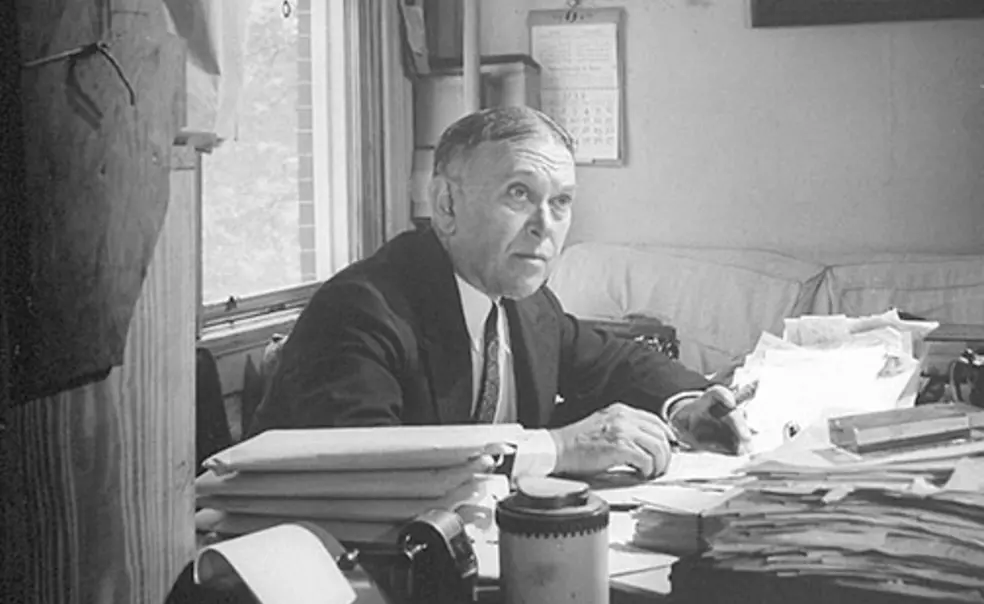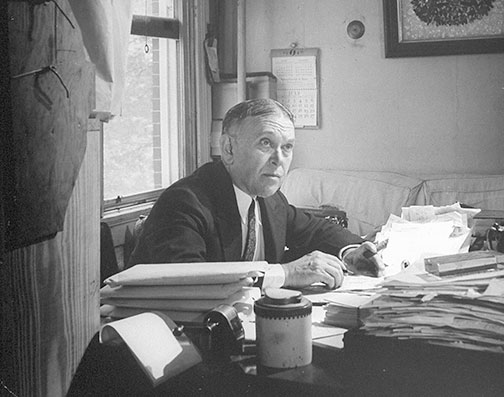One balmy afternoon, the journalist Henry L. Mencken savored the beauty of Prospect Garden. “It is easy to understand the charm of life in a college town,” the Sage of Baltimore told his diary, though acknowledging he never could be happy except in a city.
Mencken had come to the wartime campus that day, June 12, 1943, to meet with librarian Julian Boyd, who was gathering Mencken’s correspondence for a book. Boyd never finished the project, turning instead to the papers of Thomas Jefferson, but the thousands of assembled Mencken letters remain a valuable resource in Firestone Library today.
At 62, Mencken’s cultural influence had waned, but two decades earlier he had been the darling of college students everywhere. Dog-eared copies of the iconoclastic magazine he edited, The American Mercury, hung from many a trouser pocket. His relationship with Princeton had been mixed: He lambasted its militarism during World War I (and loathed Woodrow Wilson 1879) but helped launch the career of F. Scott Fitzgerald 1917 by publishing his old Nassau Lit stories.
Though proud of his lack of a college degree and scornful of undergraduates as “immature men ... always following fresh messiahs,” in 1938 Mencken agreed to judge a journalism contest for The Daily Princetonian. Once, a Prince reporter asked the famous atheist if Chapel attendance should be mandatory. Yes, Mencken said: “It consoles the stupid and purges the intelligent of whatever respect they may have for theology.”
At the end of his 1943 visit, Mencken checked out of the Princeton Inn, then left town by “a little jerk-water train” — the Dinky. Five years later, Boyd arranged what turned out to be Mencken’s last public appearance, a Philadelphia lecture, days before he suffered a debilitating stroke.













No responses yet